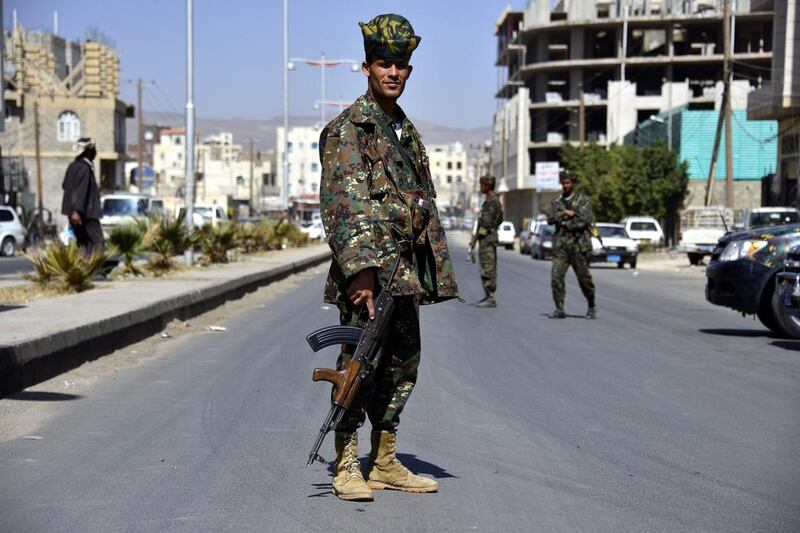SANAA // The nine Al Qaeda militants who stormed the defence ministry complex in Yemen’s capital two months ago carried raisins, almonds and dates to maintain their energy.
They wore army uniforms with tracksuits underneath to fend off the cold and each carried nine magazines for their assault rifles and a large supply of hand grenades in shoulder bags.
Nineteen hours after the December 5 attack began, they were all dead. Security forces examined their bodies and discovered the militants had effectively administered first aid to each other amid the heat of battle.
Nearly a decade after the world was first introduced to Al Qaeda in the Arabian Peninsula (AQAP), the formal name of the terror network’s branch in Yemen, the group continues to strike with near impunity.
At least 50 people were killed in the assault on the defence ministry in central Sanaa, which underscored how the group has benefited from the power vacuum in Yemen as the impoverished country takes small steps towards democracy after more than three decades of autocratic rule under by the now-ousted Ali Abdullah Saleh.
With help from the United States, the post-Saleh government has tried to neutralise AQAP through a combination of drone strikes and an all-out military offensive in the south of the country in 2012 that killed and wounded hundreds of militants.
Yet Al Qaeda remains a threat and estimates on the number of its operatives in Yemen vary between 2,000 and 3,000 full-time members, including at least 300 Saudi nationals, according to a top government official and activists who monitor the affairs of the group.
These militants have exploited the power struggle between Mr Saleh, Yemen’s longtime ruler who was ousted in 2012 after a popular uprising, and his successor Abdrabu Mansur Hadi, the nation’s interim president. Factions loyal to the two are in a power-sharing government that took office as part of an agreement sponsored by Arabian Gulf states in 2012 to end the country’s political crisis.
Yemeni officials claim there is evidence that Mr Saleh, Yemen’s ruler of 33 years, is using his extensive contacts among tribal chiefs, along with loyalists in Yemen’s security agencies and military, to undermine efforts to reform the army and police and embarrass his successor. US officials — who together with Jordan are leading the reform programme for the military and police — have discreetly warned Mr Saleh against trying to obstruct reform or the transition to democracy.
But parliamentary and presidential elections, which were scheduled for February this year, have been postponed because of continuing instability in the country.
Mr Hadi’s government faces a series of challenges as Saleh loyalists have retained much of their power. AQAP captured vast quantities of weapons from the army when they captured territory in the south of Yemen in 2011, the group has assassinated a number of security officers and often kidnaps westerners and demand ransoms as a means to raise finance.
Meanwhile, southern demands for autonomy have also prompted a change in Yemen’s political structure that would in future divide the country into a federation of six regions.
US drone strikes, which are approved by Hr Hadi’s government and usually target militants in southern and eastern regions, have often stoked anti-government and anti-US sentiments, mostly due to civilian casualties but also because of the fear and anxiety caused by days of overflights by low-flying drones that in some cases precede strikes.
The drone strikes have had a dual effect on Yemen, however: in some cases they led to growing sympathy with the militants but in others they have prompted tribal chiefs to ask the militants to leave and spare residents the strikes.
As Yemen struggles through the turmoil, Al Qaeda appears to have captured the hearts and minds of many Yemenis in areas beyond the control of the central government or regional administrations.
In some areas in the east and south, rights activists say, Al Qaeda leaders have reduced crime, punished thieves and detained murderers on the run.
They also settled disputes between residents and took widows as wives, deeds that endeared the militants to residents already frustrated by a government that offers little or no security or services — as demonstrated by the attack on the defence ministry compound in December in which dozens were killed, including nurses, doctors and one of Mr Hadi’s relatives.
foreign.desk@thenational.ae





